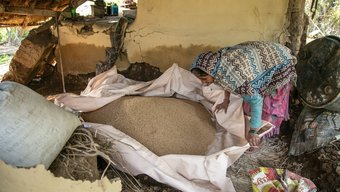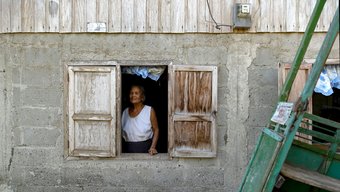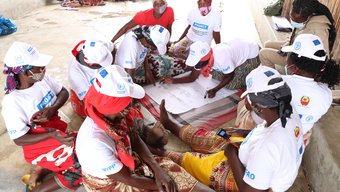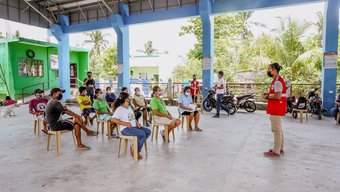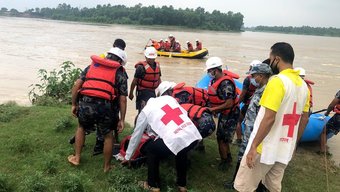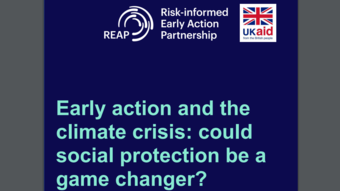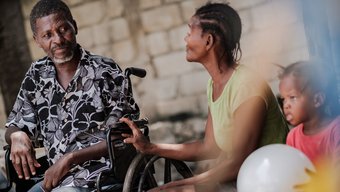Categories
Social protection and anticipatory action
Social protection policies and programmes aim to reduce poverty and vulnerability, and are key to long term, country-led strategies, to help vulnerable groups build resilience through: social assistance programmes using cash transfers and cash for work; social insurance such as pensions and unemployment allowance; and through other services such as nutrition, healthcare or employment services.
With intensifying climate events, the role of social protection in responding to climate change by minimising, averting and adapting to the impacts of climate change becomes increasingly important. Social protection systems can be considered as large risk management tools which can protect people from disaster impacts, with the potential to scale up beyond the capacity of humanitarian caseloads.
By linking national early warning systems to existing social protection systems to roll out a range of early actions, it is possible to provide faster, more sustainable, predictable, coordinated, and cost-effective assistance. For instance, a predictable and well-designed cash transfer program can scale up in advance of a drought peak, and deliver cash to groups pre-selected as particularly vulnerable to drought impacts, thus giving them the chance to plan for, and deal with the forecasted shock, and help them to avoid negative coping strategies.
Do you have a question or want to share resources?
There is a growing need to expand our knowledge on how to best implement an anticipatory approach to enable shock-response social protection systems. Please get in touch with us if you would like to share knowledge resources on this topic or engage in knowledge exchange activities.
Sayanti Sengupta
Technical Advisor, Social Protection and ClimateRed Cross Red Crescent Climate Centre
Raise your QuestionAnita Auerbach (née Yeomans)
Cash-based Early Action and Social ProtectionGerman Red Cross
Raise your QuestionPhoto: Cyclone Idai, Mozambique, aftermath, 15-16 March 2019 (Denis Onyodi: IFRC/DRK/Climate Centre)


